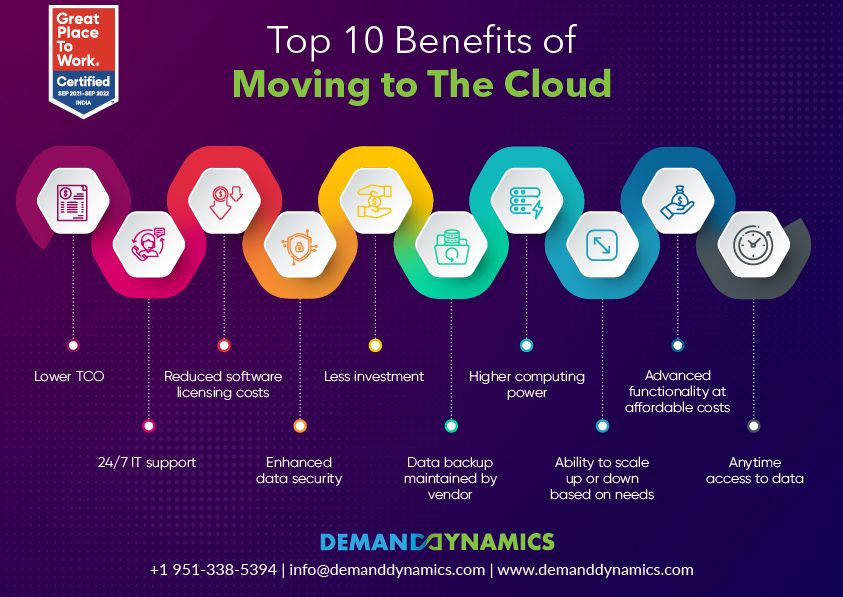Benefits of Migrating to the Cloud
In today’s technology-driven world, businesses are constantly looking for ways to improve efficiency, scalability, and flexibility. One solution that has gained significant popularity in recent years is migrating to the cloud. Cloud computing offers a wide range of benefits for businesses of all sizes, making it a valuable investment for companies looking to stay ahead of the curve. In this article, we will explore the many advantages of migrating to the cloud.
1. Cost Savings
One of the most significant benefits of migrating to the cloud is cost savings. By moving your data and applications to the cloud, you can eliminate the need for expensive on-premises hardware and infrastructure. Cloud computing allows you to pay for only the resources you use, making it a cost-effective solution for businesses of all sizes. Additionally, cloud providers offer a pay-as-you-go pricing model, allowing you to scale your resources up or down as needed, further reducing costs.
2. Scalability
Another key benefit of migrating to the cloud is scalability. Cloud computing allows you to easily scale your resources up or down based on your business needs. Whether you are experiencing rapid growth or seasonal fluctuations in demand, the cloud can quickly adjust to accommodate your changing requirements. This flexibility allows businesses to stay agile and responsive in a constantly evolving marketplace.
3. Flexibility
Cloud computing offers businesses unparalleled flexibility. With the cloud, you can access your data and applications from anywhere, at any time, using any device. This level of accessibility allows for increased collaboration among remote teams and enables employees to work more efficiently, leading to higher productivity. Additionally, cloud providers offer a wide range of services and tools, allowing you to customize your cloud environment to meet your specific business needs.
4. Security
Some businesses have concerns about the security of migrating to the cloud, but in reality, cloud computing offers a high level of security for your data and applications. Cloud providers invest heavily in security measures, such as encryption, firewalls, and multi-factor authentication, to protect your sensitive information. Additionally, cloud providers perform regular security audits and updates to ensure that your data is always protected. By migrating to the cloud, you can have peace of mind knowing that your data is secure.
5. Disaster Recovery
Disaster recovery is a critical aspect of any business continuity plan, and cloud computing can provide a reliable solution for ensuring the availability of your data and applications in the event of a disaster. Cloud providers offer robust backup and recovery solutions, allowing you to easily recover your data in case of an unforeseen event, such as a cyberattack or natural disaster. By migrating to the cloud, you can rest assured that your business can quickly recover from any potential disruption.
Conclusion
In conclusion, migrating to the cloud offers numerous benefits for businesses looking to improve efficiency, scalability, and flexibility. From cost savings and scalability to security and disaster recovery, cloud computing provides a wide range of advantages that can help your business stay ahead of the competition. By embracing the cloud, you can unlock new opportunities for growth and innovation, positioning your business for long-term success in today’s digital landscape.


